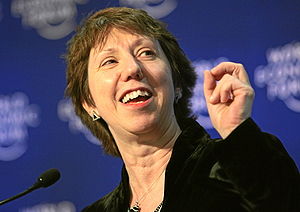 Image via WikipediaLibya's regime learned exceptionally well from Egypt's revolution. First, it has scruplously controlled its borders especially with visitors coming in as members of the press. So no Richard Engle or Anderson Cooper. And it blocked Al Jazeera's TV signal.
Image via WikipediaLibya's regime learned exceptionally well from Egypt's revolution. First, it has scruplously controlled its borders especially with visitors coming in as members of the press. So no Richard Engle or Anderson Cooper. And it blocked Al Jazeera's TV signal.
Today, NYT's Kristof in Bahrain tweets:
Reports from Libya are horrific. It shld be getting more attention, but we journalists can't get visas. I'll keep trying.|Then, Libya pulled down the internet switch on February 18. Although connectivity was reportedly restored today, reports indicate that the internet is still cut off the eastern side of Libya, where the protests have spread to six cities.
about 10 hours ago via web
Most of all, I think Libya learned that not using a heavy hand (like the willingness to kill your own people), is quite dangerous for a sitting ruler who could get swept away in such a tsunami.
It rectified that very seriously and now wields its iron fist even more brutally.
Al Jazeera quoted a Benghazi resident saying that at least 150 people, injured and dead were at a nearby hospital.
Human Rights Watch says that Libyan security forces have killed 84 people over the past three days.
Protests in the country began on February 14. Reax from the following:
UK's foreign secretary William Hague, a day after his department revoked all British arms licences to Libya and Bahrain, condemned the "unacceptable and horrifying'' use of violence by Gaddafi's security forces against his own people, "including reports of the use of heavy weapons fire and a unit of snipers against demonstrators".
"The United States urges the governments of Bahrain, Libya and Yemen to show restraint in responding to peaceful protests and to respect the rights of their people," President Obama said in a statement read to reporters by White House press secretary Jay Carney.
German foreign minister Guido Westerwelle has also denounced the violence across the region, saying that citizens are "only realizing their rights" and that a "spark of freedom" has been lit after the Tunisian government fell. Germany is one of the three major import partners of Libya.
The U.N. High Commissioner for Human Rights Navi Pillay says security forces responded in an "illegal and excessively heavy-handed" manner against peaceful demonstrators and condemned the use of live ammunition against protesters in Libya, the use of electric tasers and batons in Yemen, and the use of military-grade shotguns in Bahrain.
The EU Observer reports that EU calls for dialogue as Bahrain, Yemen, Libya kill protesters. In Libya .... Ms Ashton's spokeswoman had said earlier on Wednesday that her boss was: "following the situation very closely. As in other cases, we call on the authorities to listen to all those who are taking part in the protests ... and to allow freedom of expression."
That last one is so lame. But why single out Catherine Ashton?
Catherine Ashton is a British Labour politician who has been the High Representative for Foreign Affairs and Security Policy of the European Union (EU) since 1 December 2009. That post is equivalent to the Foreign Minister or Secretary of State.
The European Union is the first trading partner for Libya, covering almost 70% of its total trade that amount approximately to €26.4 billion in 2009. The EU is also Libya's major source of imports and is its largest market for exports in 2009.
Certainly with that kind of trade, the EU can do more than "follow the situation very closely." Whether it'll do more to pressure Libya is the €26.4 billion question.
And by the way, Libya has also been trying to join the WTO. So there is that. If Gaddafi survived this protest movement, a bunch of somebodies may be in great danger of sitting next to him in future World Trade Organization powwows. You may even have to shake his bloody hands.
In a related news, on February 16, four days after the first protest broke out in Libya, Russia’s natural-gas exporter, Gazprom, signed an agreement to take a stake in Italian oil and natural gas company, Eni's Elephant oil project in Libya. The oil project is located in Libya’s south-western desert some 800 km from Tripoli. The deal is reportedly worth $170 million. The agreement was signed in the presence of President of Russian Federation, Dmitry Medvedev and Italy’s Prime Minister, Silvio Berlusconi.
According to Gazprom's press statement, the Elephant field contains 110 million tonnes of estimated recoverable oil reserves. The maximum annual oil output is expected to reach some 6 million tonnes.
We should hear statements of concerns on this brutal crackdown from President Medvedev and Prime Minister just about now.



No comments:
Post a Comment